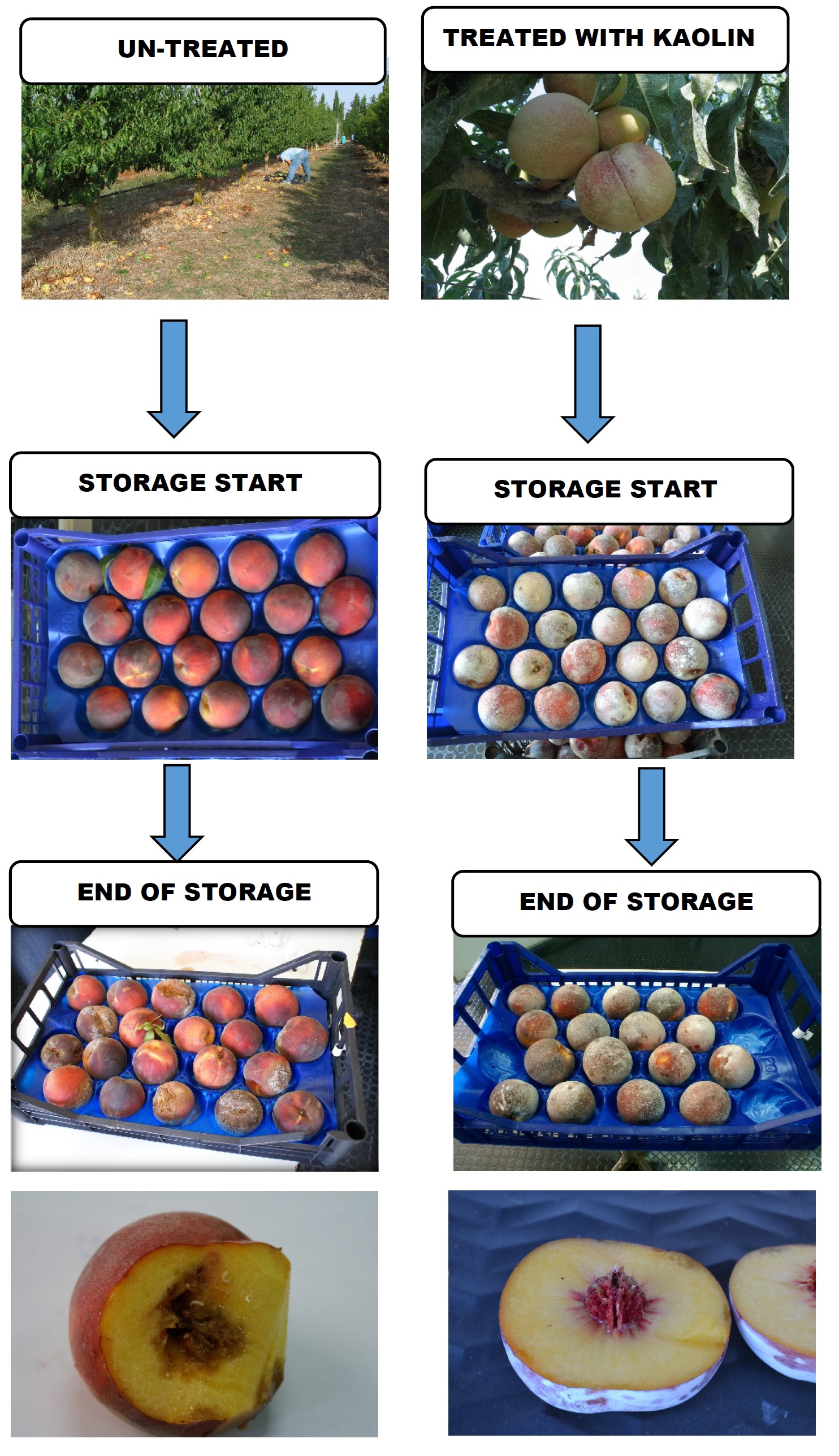Effects of kaolin-based particle film on physiological, nutritional, nutraceuticals parameters and Ceratitis capitata infestations in peach fruit at harvest and after storage

Published 2020-07-11
Keywords
- decay,
- fruit fly,
- peach fruit,
- postharvest physiology,
- quality
How to Cite
Abstract
The Mediterranean fruit fly (Ceratitis capitata Wiedemann) is a worldwide pest of economi importance because attacks a large number of agricultural crops and for the extent of the damage it causes. Among the alternative control strategies to the use of sprays with synthetic insecticides, a very important role can be played by powders obtained from rocks whose activity arise from the ability to form a film of white powder, which acts as a repellent and irritant to insects. This film can also interfere with plants’ physiology and affect quality of fruit. In this study the efficacy of a commercial kaolin-based formulation to control medfly infestations was compared to synthetic insecticides commonly used against this pest (phosmet, alfa-cypermethrin, deltamethrin). The results showed a significant reduction of medfly attacks in fruits treated with insecticides (1.5% damaged fruit) or with kaolin (0.5% damaged fruits) compared to the untreated sample (10% damaged fruits), while physiological and quality parameters ded not show relevant differences between treatments and control fruit. Overall results highlight how the use of kaolin represents a valid alternative to treatments with synthetic insecticides to control C. Capitata attacks on peaches, while not affecting fruits’ quality.





